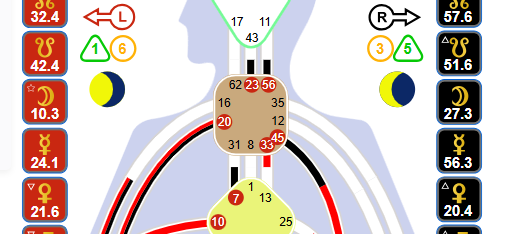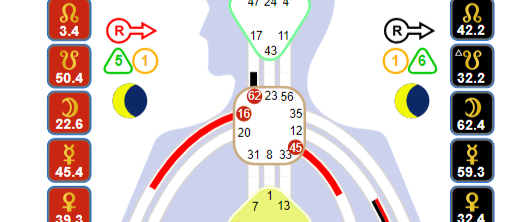Finding Your Voice: The Conditioning of an Undefined vs. Defined Throat Center
- Meghan Lambert
- Mar 26, 2025
- 3 min read
Have you ever found yourself sitting on a thought, a brilliant insight, or even just a simple comment because you weren’t sure how to say it? Or maybe you’ve felt the pressure to speak, to fill the silence, to be the one with the answers? If so, welcome to the world of Throat Center conditioning in Human Design.
For me, connecting with my audience was something I overcomplicated for no reason. I waited until I felt strong, like I had something powerful to say. But when the moment came, I would freeze, unsure of how to say it or even where to start. My undefined Throat Center kept me trapped in a loop of hesitation. The only place I felt truly free to speak was my podcast (thank you, undefined throat center!).
I was taught—like many of us—to only speak when spoken to. To think twice before opening my mouth. If you also grew up with these messages, you probably know how deeply ingrained that conditioning can be. It wasn’t just about being polite; it was about suppressing my natural voice, which made finding it later in life feel like a whole damn scavenger hunt.
So, what’s the deal with the Undefined vs. Defined Throat Center in Human Design? Let’s break it down:
The Undefined/Open Throat Center: The Chameleon of Expression
If your Throat Center is undefined or completely open, you’re here to communicate in a way that adapts to your environment. But because society values consistent voices, you might have been conditioned to believe that speaking up was only valuable when it was predictable or authoritative.
How conditioning shows up in an undefined Throat:
Feeling pressure to speak in social settings to “prove” your worth.
Struggling with when and how to say things.
Worrying if your words even matter.
Trying to “force” a voice that doesn’t feel natural.
Holding back your wisdom because you don’t trust when or how it will land.
For me, this showed up as constantly questioning my words. Did I say that right? Did they get what I meant? Should I have said more? Should I have said less? It was a never-ending internal debate.
The Defined Throat Center: The Natural Broadcaster
If your Throat Center is defined, your voice has a built-in rhythm and reliability. When you speak, it’s usually direct, steady, and has a natural flow. People with defined Throats often don’t struggle as much with finding their voice—they just have it.
But conditioning still happens, just in a different way.
How conditioning shows up in a defined Throat:
Feeling the need to always be the one speaking or leading conversations.
Being told they’re “too much” or that they talk over people.
Not recognizing when to pause and let others contribute.
Being expected to be the “go-to” speaker in every setting.
The defined Throat isn’t about trying to be heard—it just is heard. The key is learning how to use it with intention rather than obligation.
My Journey: From Silence to Speaking Up
For the past few years, people told me to use my voice, share my story, speak my truth—but no one told me how. So, I stayed quiet.
Then, I looked at my Human Design chart and noticed something: Gate 16 sits in my Radiance Sphere in Gene Keys (my Unconscious Sun). This is the Gate of Skill, the Gene Key of Mastery, and guess where it’s located? The Throat.
I realized that I’d been practicing the learning/listening side of Gate 16 but not the speaking side. I absorbed so much knowledge but never gave myself permission to share it.
Then there’s Gate 45 in my Unconscious Mercury, known as the Great Gatherer or the Gene Key of Communion. This too is located in the throat center. If I was ever looking for a cosmic sign that I’m meant to speak, this was it.
So, I’ve been deconditioning from silence and stepping into my true voice—however it wants to come out. No forcing. No overthinking. Just speaking.

Reflection: What’s Your Speaking Conditioning?
I want you to ask yourself:
Does speaking feel natural, or do you overthink it?
Do you feel pressure to speak, or do you avoid speaking at all?
Have you been told your voice is “too much” or “not enough”?
If you have an undefined/open Throat, how have you adapted your communication over the years? If you have a defined Throat, how has your voice been shaped by expectations?
This journey of finding my voice is ongoing, but one thing I know for sure: I’m done holding back.
Let me know in the comments—what’s your biggest challenge with speaking your truth?







Comments